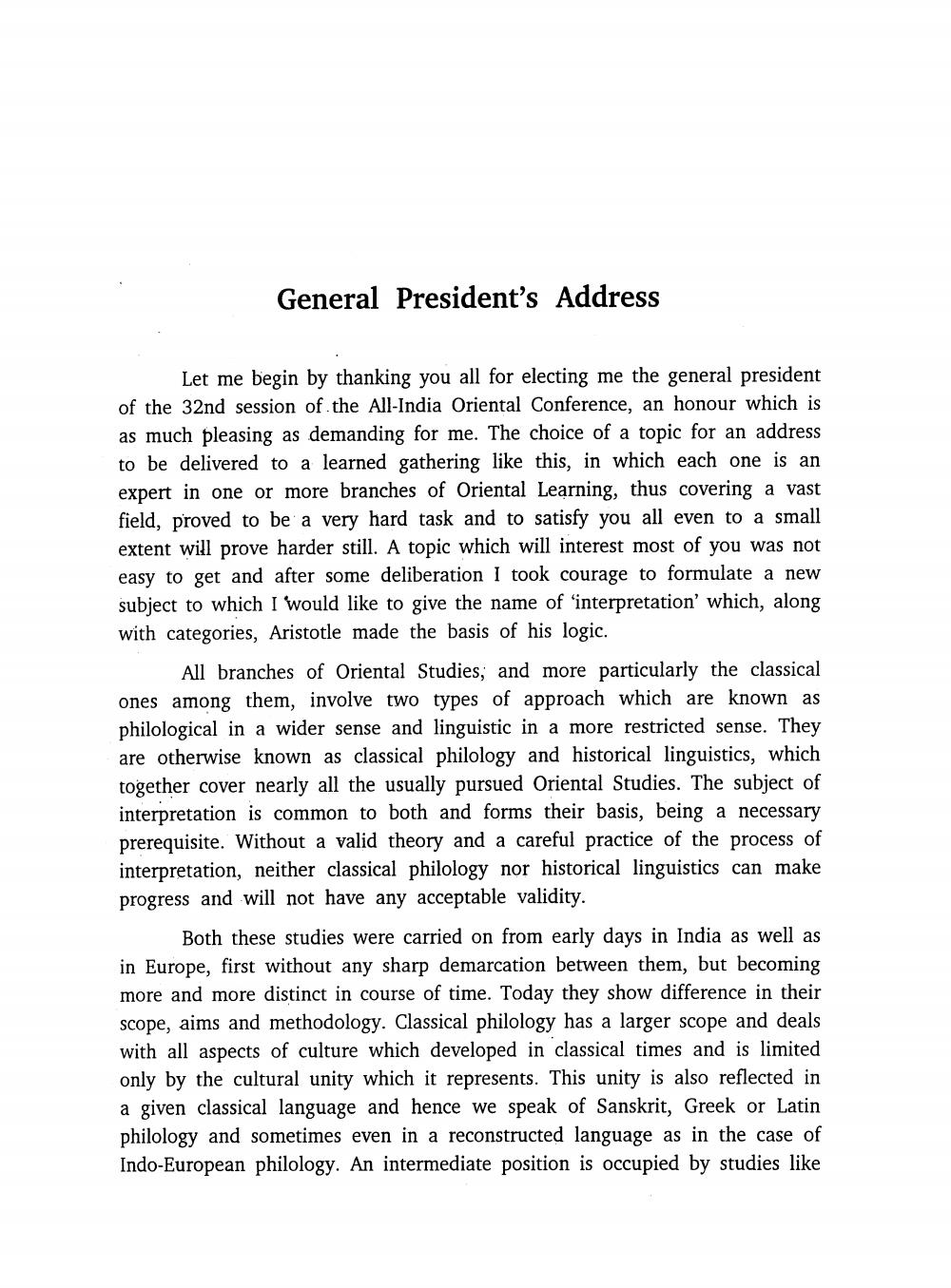________________
General President's Address
Let me begin by thanking you all for electing me the general president of the 32nd session of the All-India Oriental Conference, an honour which is as much pleasing as demanding for me. The choice of a topic for an address to be delivered to a learned gathering like this, in which each one is an expert in one or more branches of Oriental Learning, thus covering a vast field, proved to be a very hard task and to satisfy you all even to a small extent will prove harder still. A topic which will interest most of you was not easy to get and after some deliberation I took courage to formulate a new subject to which I would like to give the name of 'interpretation' which, along with categories, Aristotle made the basis of his logic.
All branches of Oriental Studies; and more particularly the classical ones among them, involve two types of approach which are known as philological in a wider sense and linguistic in a more restricted sense. They are otherwise known as classical philology and historical linguistics, which together cover nearly all the usually pursued Oriental Studies. The subject of interpretation is common to both and forms their basis, being a necessary prerequisite. Without a valid theory and a careful practice of the process of interpretation, neither classical philology nor historical linguistics can make progress and will not have any acceptable validity.
Both these studies were carried on from early days in India as well as in Europe, first without any sharp demarcation between them, but becoming more and more distinct in course of time. Today they show difference in their scope, aims and methodology. Classical philology has a larger scope and deals. with all aspects of culture which developed in classical times and is limited. only by the cultural unity which it represents. This unity is also reflected in a given classical language and hence we speak of Sanskrit, Greek or Latin philology and sometimes even in a reconstructed language as in the case of Indo-European philology. An intermediate position is occupied by studies like




